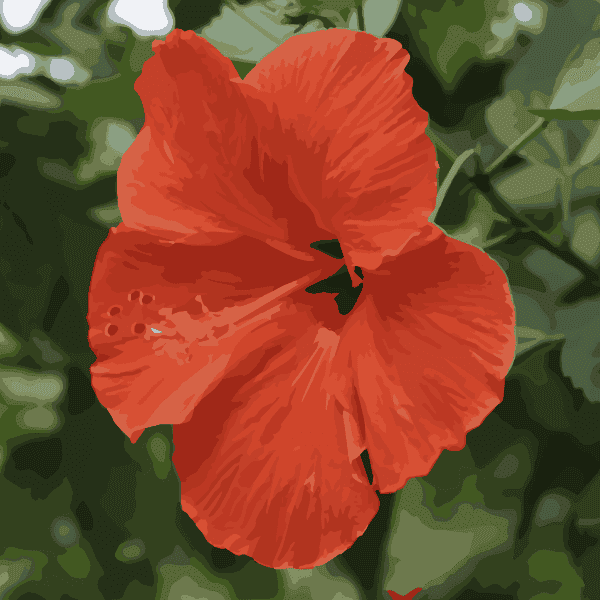
Hibiscus Flowers {Organic}
Hibiscus comes from a flowering plant in the Malyaceae family. It is grown in tropical and subtropical areas. It has a large, colorful flower. It is high in antioxidants, has antibacterial properties, and may even support weight loss. You will commonly find it used in food, tinctures, and cosmetics.
You Might Need Hibiscus...
If you're feeling stressed and run down, you may deplete your body's antioxidants. Hibiscus is a rich source of antioxidants and vitamin C, aiding your body during stressful times.
What is Hibiscus?
Hibiscus is a genus of flowering plants in the mallow family, Malvaceae. It contains several hundred species native to warm temperate, subtropical, and tropical regions worldwide. Hibiscus plants are known for their large, colorful flowers, which are often used for ornamental purposes in gardens and landscapes. Certain species are also edible and medicinal.
Here is a list of a few edible/medicinal hibiscus species:
- Hibiscus sabdariffa (Roselle)
- Hibiscus rosa-sinensis (Chinese Hibiscus)
- Hibiscus acetosella (False Roselle, Cranberry Hibiscus)
- Hibiscus esculentus (Okra)
Benefits of Hibiscus
Great source of antioxidants: The bright red color of the flower is one indicator of antioxidants like anthocyanins, beta carotin, and vitamin C.
Antibacterial properties: Hibiscus extract has been shown to have antibacterial properties in several studies.
May support weight loss: The polyphenols in hibiscus have metabolic-regulating properties that may protect the body from obesity and weight gain; these polyphenols may also support weight loss.
Common Ways to Use Hibiscus
Ornamental: Hibiscus is widely grown for its attractive flowers.
Culinary: Some species, like Hibiscus sabdariffa, are used in food and beverages like teas, jellies, and sauces.
Supplement: Hibiscus is commonly taken as a tincture or a tea.
Cosmetic: Hibiscus extracts are sometimes used in skin and hair care products for their moisturizing and antioxidant properties.
🌿Try making herbal extractions or these Hibiscus-Ginger Oat Bars! ← 🟩 DIYs, recipes, and more!
Growing and Foraging Information
Hibiscus is an extremely popular ornamental plant valued for its big, bright, and beautiful flowers. It is important to note that there are many varieties of hibiscus, and a lot are wild, but not all are edible. This section, therefore, will only be about growing edible hibiscus.
Hibiscus is a tropical plant that prefers warm climates. If you are growing it in a colder climate, it should be potted and brought indoors for the colder months. Hibiscus is a nutrient- and heat-loving plant that requires a lot of both. Avoid deep pots. Hibiscus does best in a well-drained, moist, loamy soil.
Safety Concerns
Because hibiscus may help lower blood pressure, consult your medical professional if you have any concerns.
Drug Interaction: If you are taking prescription medication and are concerned with how they may interact with hibiscus, please consult your medical professional.
Breastfeeding and Pregnancy: There is little information indicating whether hibiscus should or should not be used topically during pregnancy or breastfeeding. If you have concerns about using it topically or otherwise, please consult a medical professional.
Select Studies about Hibiscus
Ethanol-extracted Hibiscus rosa-sinensis was studied for its antibacterial properties and urease-inhibiting ability. In certain concentrations, it was shown to affect the bacteria and urease activity of H. pylori. The study concluded that in vivo research should be conducted to confirm Hibiscus rosa-sinensis as an effective treatment for H. pylori disease.
This small study was done on 36 individuals. After 12 weeks, the polyphenols found in Hibiscus sabdariffa extract demonstrated metabolic regulation and liver-protecting potential. The group that was taking Hibiscus sabdariffa extract saw a reduction in body weight, BMI, body fat, and waist-to-hip ratio. Their serum free fatty acid was also lower.